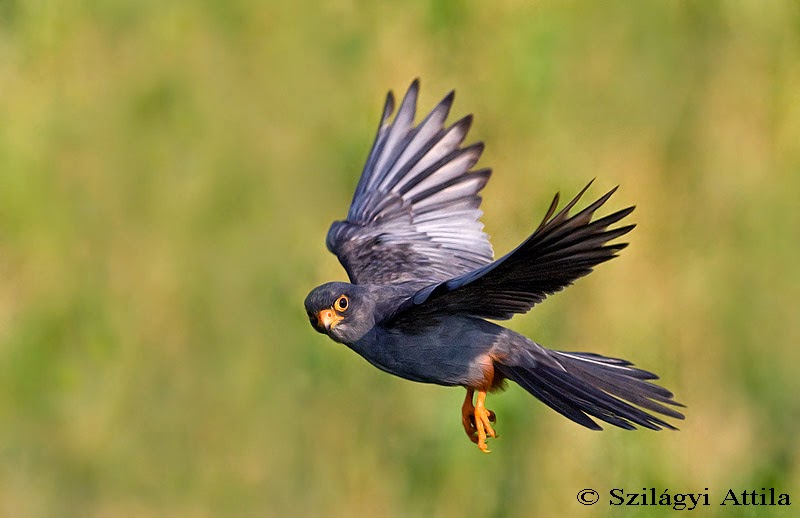It has long been known that raptors, Storks
and most large birds need thermals to gain elevation, and it has long been recognised
that Rift Valleys and Mountain chains provide an excellent chance of seeing
these interesting birds. Combine this with correct timing, for example when
these raptors are returning from their breeding grounds in the Northern
Hemisphere and travelling south to their wintering areas then your chances will
increase.
environment in the Ruwenzori foothills. One of my first forays was North of Fort Portal in the vicinity of Lake Saka. Here I observed my first Ugandan Great-crested Grebes together with a sprinkling of returning migrants like European Bee-eater Common Cuckoo and Icterine Warbler, while overhead I was pleased to see a couple of Steppe Buzzard, three Honey Buzzard and four European Hobby. This might be good for passage raptors!
 Saturday 4th October 2014 was
dreary and wet with rain falling for over six hours, but Sunday 5th
was crystal clear with no cloud cover on the Ruwenzori chain. My wife and I
decided to get up early, drive to the lake and walk on from there towards the
escarpment overlooking the Lake Albert rift valley. Towards mid-morning we saw
our first raptors, three Steppe Buzzards over-flying us travelling south. Then
as the morning progressed more raptors began appearing with “kettles” of Steppe
Buzzard and Lesser-spotted Eagle’s appearing overhead as they climbed up the
rift. At about 10am I saw a circling Honey Buzzard and while watching it a
small falcon appeared, initially appearing all grey below with an obvious
orange/red ventral area. It had to be a male Red-footed Falcon and we watched
it for a couple of minutes soaring with the Honey Buzzard before gaining height
and both birds drifting south. This is only the third record of Red-footed
Falcon for Uganda and just one of many raptors seen this morning before the
clouds started appearing and migration curtailing and the inevitable Fort
Portal rains re-appeared.
Saturday 4th October 2014 was
dreary and wet with rain falling for over six hours, but Sunday 5th
was crystal clear with no cloud cover on the Ruwenzori chain. My wife and I
decided to get up early, drive to the lake and walk on from there towards the
escarpment overlooking the Lake Albert rift valley. Towards mid-morning we saw
our first raptors, three Steppe Buzzards over-flying us travelling south. Then
as the morning progressed more raptors began appearing with “kettles” of Steppe
Buzzard and Lesser-spotted Eagle’s appearing overhead as they climbed up the
rift. At about 10am I saw a circling Honey Buzzard and while watching it a
small falcon appeared, initially appearing all grey below with an obvious
orange/red ventral area. It had to be a male Red-footed Falcon and we watched
it for a couple of minutes soaring with the Honey Buzzard before gaining height
and both birds drifting south. This is only the third record of Red-footed
Falcon for Uganda and just one of many raptors seen this morning before the
clouds started appearing and migration curtailing and the inevitable Fort
Portal rains re-appeared.
RAPTOR TOTALS this morning:
Steppe Buzzard, 45.
Lesser-spotted Eagle, 9.
Honey Buzzard, 4.
Black Kite, 5.
Long-crested Eagle, 3.
Wahlberg’s Eagle, 2.
Palm-nut Vulture, 2.
And singles of; Grey Kestrel, Red-footed
Falcon, Black-shouldered Kite, Booted Eagle, African Hobby, Lizard Buzzard,
Lanner Falcon and African Fish Eagle
Roger Q Skeen.


No comments:
Post a Comment